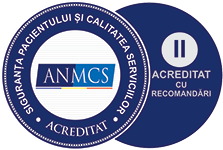Pneumology includes the detection, diagnosis, treatment and recovery of patients suffering from diseases of the respiratory system (pulmonary, bronchial, pleural and mediastinal diseases) by non-surgical means, covering a wide range of conditions such as:
- Respiratory infectious diseases: these include pneumonia (lung infections), bronchitis, tuberculosis and influenza.
- Chronic respiratory diseases: among the most common are chronic obstructive pulmonary disease (COPD) and asthma.
- Interstitial lung diseases: this group of diseases affects the supporting tissue of the lungs, called interstitial tissue. Pulmonary fibrosis is one example and involves scarring of the lung tissue, which can lead to breathing difficulties.
- Lung cancer (or bronchopulmonary neoplasm/carcinoma) occurs when cells in the lungs mutate and multiply uncontrollably, forming tumours. However, the lungs can also be affected by lung metastases, which are secondary tumours that arise when malignant cells from tumours in other organs (often the colon, kidney, pancreas or breast) spread to distant blood and lymph.
Lung cancer is responsible for nearly one in five cancer deaths worldwide, causing more than 1.6 million deaths each year. It causes more deaths than breast, colon and prostate cancer combined, worldwide. Specifically, every 30 seconds, somewhere in the world, one person dies of lung cancer.
!!!!!! Bronchopulmonary cancer can be cured if diagnosed and treated at an early stage.
DIAGNOSIS AND TREATMENT OF BRONCHOPULMONARY DISEASES
For the diagnosis of pleuro-pulmonary diseases, in addition to physical examination and specific history (hereditary pulmonary diseases, exposure to toxins, previous infections, autoimmune diseases), clinical and paraclinical tests are used, such as: laboratory tests, spirometry, pulsoximetry, electrocardiogram, pulmonary imaging.
Treatments vary depending on the condition and may include medication, physical therapy or surgery.
PREVENTION of bronchopulmonary diseases is crucial for maintaining a healthy respiratory system. Here are some important steps that can be taken to reduce the risk of these conditions:
- Avoiding smoking: Smoking is a major risk factor for a number of respiratory diseases, including COPD, lung cancer and respiratory infections. Quitting smoking or avoiding exposure to tobacco smoke is the most effective way to protect your lungs.
- Avoiding air pollution: prolonged exposure to polluted air can contribute to lung health damage. Specialists recommend avoiding areas with high pollution levels and limiting exposure to smoke, industrial emissions and heavy traffic.
- Vaccination: Flu and pneumonia vaccines can reduce the risk of serious respiratory infections and complications, especially in vulnerable people such as the elderly and those with pre-existing medical conditions.
- Respiratory hygiene: Frequent hand washing and covering your mouth and nose when you cough or sneeze can help prevent the spread of respiratory infections.
- Maintain a healthy weight: Excess weight can put pressure on the respiratory system and increase the risk of COPD and sleep apnea. Maintaining a healthy weight through balanced diet and physical activity can contribute to lung health.
- Proper home ventilation: Maintaining a clean air environment in the home can help reduce exposure to allergens and particles that can irritate the lungs.
- Regular physical activity: Regular exercise can help maintain lung health and improve breathing capacity.
- Avoiding exposure to toxic substances: For people working in environments with toxic or irritating substances, it is absolutely essential to follow safety rules and wear appropriate protective equipment.
- Control of pre-existing conditions: For patients already diagnosed with certain conditions, such as asthma or allergies, it is recommended to follow the hygienic, dietary and medical treatment prescribed by the specialist, in order to keep symptoms under control and prevent complications.
- Regular medical check-ups: Regular visits to the pulmonologist or family doctor can help to detect any respiratory problems early and start treatment as soon as possible.
By taking steps to prevent exposure to risk factors and adopting a healthy lifestyle, you can make a significant contribution to maintaining the health of your lungs and respiratory system as a whole.





 Română
Română English
English